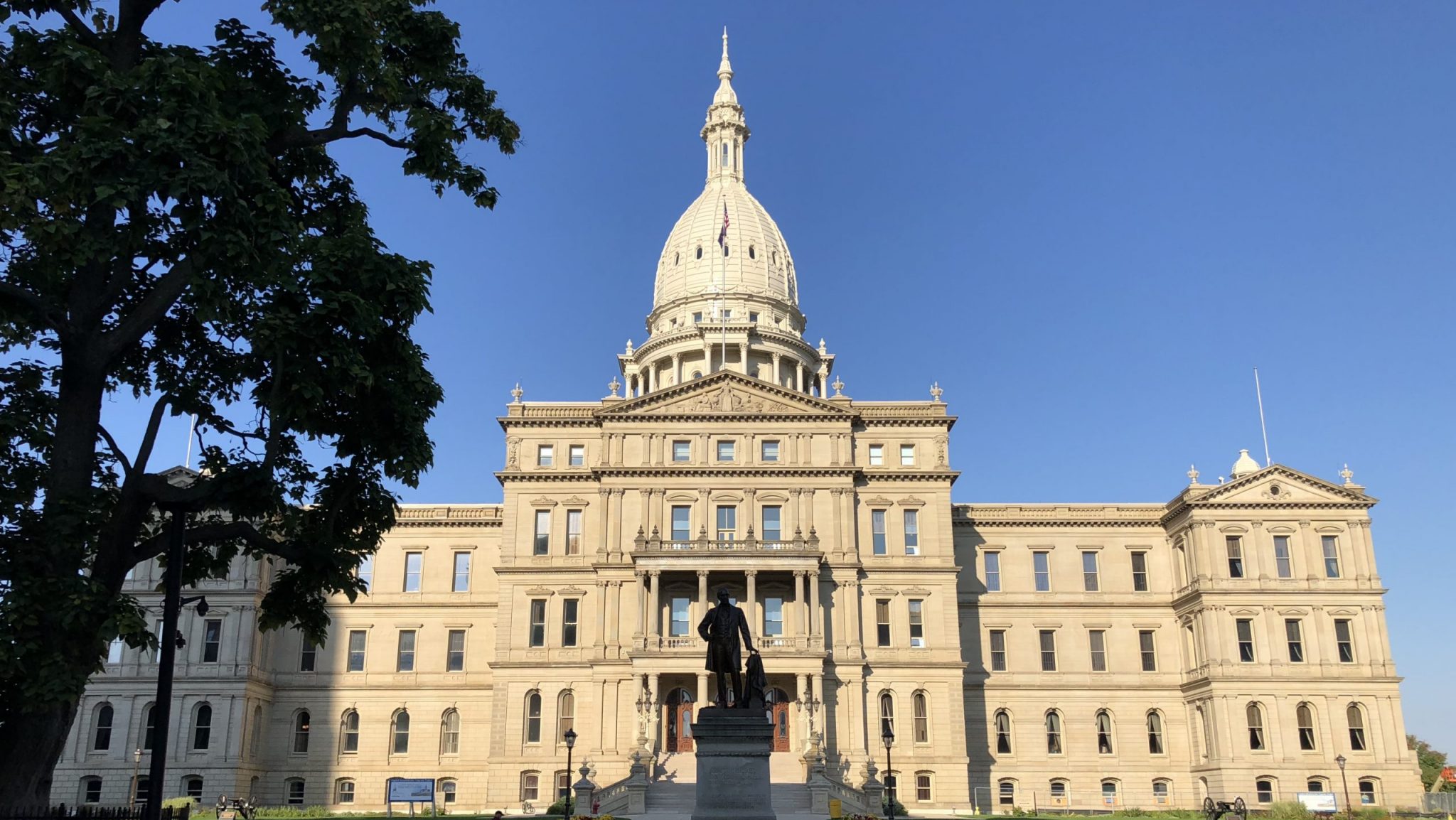Budget bills sent to Whitmer; billions held back for possible tax cuts
The roughly $77 billion plan includes a $54.8 billion for state departments as well as a combined $22.1 billion for school aid, community colleges and public universities.

Michigan State Capitol building.
After a session that stretched late into the early morning, the Michigan Legislature on Friday approved a record-breaking budget for fiscal year 2023.
The roughly $77 billion plan includes a $54.8 billion for state departments as well as a combined $22.1 billion for school aid, community colleges and public universities.
This is the earliest Democratic Gov. Gretchen Whitmer and the Republican-led Legislature came to a budget agreement since Whitmer took office in 2019.
“I am proud that the budget will grow Michigan’s economy and workforce, make record investments in every student and classroom, protect public health and public safety, expand mental health resources, and empower working families and communities,” Whitmer said in a joint statement with legislative leaders.
Education spending gets a boost
The education bill boosts spending in several areas. That includes a Senate-backed $450 increase in per-pupil spending for a new total of $9,150 per student, including those attending cyber-schools.
The legislation also sets aside $500 million for school consolidation and infrastructure projects.
Sen. Wayne Schmidt (R-Traverse City) sits on the Senate Appropriations Committee.
“This budget builds on years of commitment to K-12 education, transportation and infrastructure repairs and growing our economy — while supporting efforts to improve our state for all ages and for generations to come,” he said in a press release.
Meanwhile, the general government spending plan would put $750 million toward a grant program to help local governments fund their pension systems.
Rep. Thomas Albert (R-Lowell) chairs the House Appropriations Committee. He said paying down debt is important.
“I’m most proud of the $2.6 billion of debt reduction. I’m not aware of any state in the history of the United States making this level of commitment to reducing liability,” he said.
Lawmakers are celebrating the deal as a win for bipartisanship. There are $168 million set aside for school safety grants, $1.5 billion for special education and $251.5 million for economic development and workforce grants.
Rep. Joe Tate (D-Detroit) is the minority vice chair of House Appropriations. “What we’ve accomplished here, for our state as a whole and the individual communities we all represent, is a tremendous budget I’m proud to pass for the people of Detroit and the people of Michigan,” Tate said in a press release.
Between leftover federal dollars and a multibillion-dollar surplus, lawmakers had large amounts of money to work with.
Rep. Ben Frederick (R-Owosso) said it makes sense to set some money aside for later.
“Generally, there’s a desire to be reflective on where we are potentially with the economy. Our last thing we want to do is come back with a negative type of supplemental in a few months because we some of the aftershocks of inflation, some economic situations,” Frederick said.
What the budget doesn’t include
Some controversial items from earlier proposals did not make it into the final agreement. It left out House-proposed language that targeted transgender school athletes.
The proposal sent to the governor also doesn’t include language that bans state funds from going to any entities that provide elective abortions.
The spending plan sets aside a large pot of money that will be the subject of future bargaining, including possible tax cuts.
Sen. Curtis Hertel (D-East Lansing) said Democrats and Republicans can work out those and other details in future legislation. He said it could come as soon as September.
“I think there are some things we can agree on right now,” Hertel said. “The governor said that she’ll support the sales tax reduction on gas. We passed it out of [the Senate] pretty bipartisan-ly. It’s been sitting in the House since.”
Sen. Jim Stamas (R-Midland) chairs the Senate Appropriations Committee. He said he hopes to see a reform of the gas tax to account for more electric vehicles going out on the road.
“We have EVs coming and finding a way to balance the funds going to the roads until we get a long-term solution, to me puts the best policy forward. But I think there’s a lot of other discussions going as well,” he told reporters after the budget passed.
The Legislature now enters its summer recess.
Trusted, accurate, up-to-date.
WDET strives to make our journalism accessible to everyone. As a public media institution, we maintain our journalistic integrity through independent support from readers like you. If you value WDET as your source of news, music and conversation, please make a gift today.

